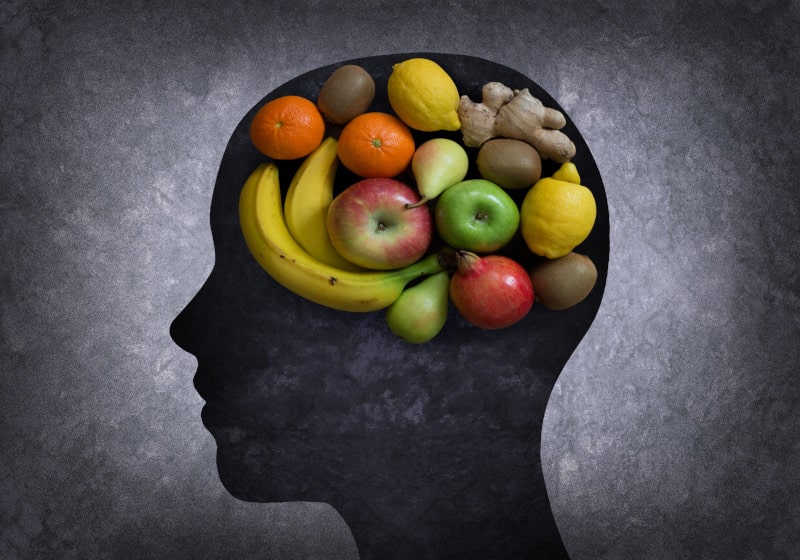The relationship between nutrition and mental health is crucial, as food significantly impacts our mental well-being. You’ve probably noticed that a disordered diet can negatively affect your mood and physique.
On the other hand, a healthy and balanced diet can improve your emotional and mental well-being. It is essential that the diet is personalized to obtain the best results.
To optimize this relationship, PlanEAT , the Nutrition App , offers tools to personalize your diet, ensuring adequate nutrition that benefits both your physical and mental health.
Content
The Relationship Between Your Nutrition and Mental Health
Understanding our Contemporary Lifestyle
6 Tips to Improve Your Nutrition and Mental Health
The Relationship Between Your Nutrition and Mental Health
Nutrition is a key environmental factor affecting brain development. Nutrients influence brain structures and the function of neurotransmitters, which are essential for neural development and brain repair mechanisms. Adequate intake of nutrients, vitamins and minerals is vital for mental health.
The brain, being a metabolically active organ, requires specific nutrients for its development and functioning throughout life. In stages of growth, development and plasticity, the central nervous system is particularly sensitive to nutrition, especially malnutrition . The relationship between nutrition and mental health is evidenced by how nutrients impact brain development and cognitive function at different stages of life.
What is Mental Health?
To understand the relationship between nutrition and mental health, we must first define what mental health is. According to the WHO (World Health Organization), mental health is a state of well-being that allows people to cope with life’s stressful moments, develop all their skills, learn, work properly and contribute to the improvement of their community.

Mental health is an integral part of overall health and well-being, sustaining our individual and collective capacities to make decisions, form relationships and shape our environment. It is a fundamental right and essential for personal, community and socio-economic development. The relationship between nutrition and mental health is crucial, as good nutrition can sustain these aspects of our lives.
Mental health is not limited to the absence of mental disorders; it is a complex process that varies from person to person, presenting different degrees of difficulty and distress, with varied social and clinical outcomes. Mental health-related conditions range from mental disorders and psychosocial disabilities to mental states associated with high distress and functional disability.
Our brains require a significant amount of energy and specific nutrients to function properly. About 20% of the glucose in arterial blood and 20% of the fats in the brain, made up of essential fatty acids such as omega 3 and omega 6, are vital for its functioning. Other important nutrients include vitamin D, B complex, iodine, iron and probiotics, all of which influence the relationship between nutrition and mental health.
In addition, the brain has a high concentration of vitamin C in its nerve endings. Good nutritional status is essential for mental health, as a poor-quality diet can contribute to the development of mental pathologies such as depression and also makes it difficult to control anxiety . Nutrition and mental health are therefore closely linked, underlining the importance of a balanced diet to maintain optimal mental well-being.
Understanding our Contemporary Lifestyle
Our current lifestyle is leading to an increase in the prevalence of conditions such as childhood obesity , diabetes, certain types of cancer, and chronic, cardiovascular and mental illnesses . This is largely due to the excessive intake of ultra-processed products, diets high in refined sugars and low-quality fats, which generate an imbalance in lipid and carbohydrate metabolism.
Meal planning is essential to avoid resorting to ready-made or pre-cooked meals. Additional factors such as smoking, alcohol consumption, sedentary lifestyle and sleep quality also significantly influence the relationship between nutrition and mental health.
A proper diet can improve both mental health and general well-being. It influences aging and helps mitigate mental disorders, since eating healthy foods can reduce the risk factors for these pathologies, positively affecting brain chemistry and mood.

Proper nutritional and metabolic support can improve the structure and function of neuronal cells, maintaining an adequate balance of neurotransmitters such as serotonin, which influences mood. Thus, the relationship between nutrition and mental health becomes evident, underlining the importance of a balanced diet for mental and physical well-being. With age, it is even more crucial to follow a healthy and balanced diet in old age .
6 Tips to Improve Your Nutrition and Mental Health
Here are some tips to improve your eating habits and, with them, your physical and mental well-being:
- Eat an early and light dinner : Choose a dinner rich in vegetables and healthy fats, and try to eat dinner early, around 7 pm in winter and 8 pm in summer. This habit can have a positive impact on your nutrition and mental health.
- Introduce vegetables into your main meals : To improve your health, make sure that 50% of your plate is made up of vegetables, either raw in salads or cooked. This simple change can have great benefits for nutrition and mental health.
- Avoid processed sweets : Products such as processed pastries, biscuits and ice cream are harmful due to their high sugar content, low-quality fats and refined flours. Reducing their consumption can improve both your nutrition and your mental health.
- Increase your intake of healthy fats : Include foods such as eggs, oily fish, nuts, seeds and extra virgin olive oil in your diet. These healthy fats are crucial for good nutrition and mental health.
- Include probiotic-rich foods : Foods like unpasteurized apple cider vinegar, miso, tamari, fresh sauerkraut, kefir, and kombucha tea are excellent sources of probiotics that can benefit your nutrition and mental health.
- Eat high-fiber foods every day : Fiber is essential for proper intestinal transit and for feeding intestinal bacteria. Include vegetables, greens, boiled potatoes, and seeds like flax or chia in your daily diet to improve your nutrition and mental health.
Improving your nutrition and mental health is crucial to your overall well-being. Incorporating habits like eating dinner early and light, increasing your vegetable intake, and avoiding processed sweets can make a big difference.

In addition, consuming healthy fats and foods rich in probiotics and fiber helps maintain an adequate balance of neurotransmitters, positively influencing your mood. The relationship between nutrition and mental health is clear, as an adequate diet can reduce the risk factors for mental disorders.
To facilitate these changes, you can use PlanEAT , the free Nutrition APP , which will help you plan your meals in a healthy and effective way.

